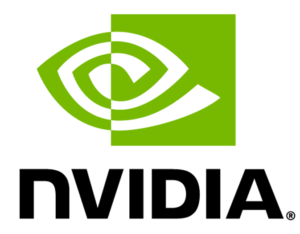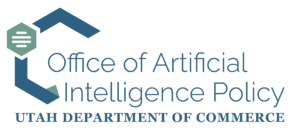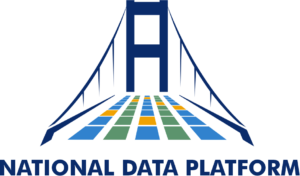
A Breath of Fresh Air: AI Hackathon
This hackathon invited participants to create AI-powered solutions for air quality across the Wasatch Front addressing pressing challenges in predicting poor air quality either due to wildfire smoke or inversions, elucidating contributing factors, such as the Great Salt Lake, geography, weather, and human factors, and mitigating effects of poor quality. With a focus on leveraging data science, machine learning, and AI, participants created tools and models to tackle real-world issues around air quality and help communities and policymakers make informed decisions to improve air quality and public health.
Congratulations to our winners
First Place Prize: $1500 cash, $1250 AWS Credits
Breathe Safe
Ishita Juluru, Maxwell Smith, Ted Staros, Parker Suzuki, Matthew World
Second Place Prize: $1000 cash, $750 AWS Credits
LumaVita
Faith Amin, Ange Konan, Milena Toebe
Third Place Prize: $500 cash
Fresh Route
Kai Markley, Gabriel Min, Kaiden Tran
NVIDIA's Choice Award: GeForce RTX 4090 GPU
Team Fireball
Nikita Lopatenko, Yuvraj Malik, Venkataditya Maramreddy, Byron Stewart, Maksym Taran
Honorable Mention
Iforgotsry
Evelyn Park, Ryan Park, Justin Sebahar
Honorable Mention
Simple
Khash-Erdene Baasandorj, Tsogt Enkhbat, Udval Oyungerel
Honorable Mention
T-LOCC
Alon Meir, Liam Kramer, Valerie Springer
Thank You to Our Sponsors
Amazon Web Services (AWS) Enablement and Pre-Planning Sessions
From May to early June, Amazon Web Services (AWS) and the National Data Platform (NDP) offered virtual enablement sessions to provide participants with the skills needed for the hackathon. RSVPs were required to ensure there’s enough interest (at least 20 participants) to hold each session.
Workshops lasted three hours and entailed a lecture and hands-on training.
Office hours followed workshops. They lasted one hour and allowed for Q&As with relevant experts.
- May 1, 11:30-1:00: Team Kickoff*
- May 6, 1:00-4:00: Virtual Workshop—AWS Basics*
- May 7, 12:00-1:00: Virtual Office Hours—Subject Matter Experts*
with Tom Becnel (TELLUS), Derek Mallia (UofU, Atmospheric Sciences), and Akhil Potla (UofU, Software Design Engineer CTSI) - May 8, 12:00-1:00: Virtual Office Hours—AWS Basics*
- May 12, 1:00-4:00: Virtual Workshop—SageMaker Canvas†
- May 13, 12:00-1:00: Virtual Office Hours—Subject Matter Experts*
with William Anderegg (UofU, Biological Sciences), Philip Harrison (Utah Department of Air Quality), John Lin (UofU, Atmospheric Sciences), and Rob Smart (UofU, Software Design Engineer CTSI) - May 14, 12:00-1:00: Virtual Office Hours—National Data Platform & Data Access Δ
- May 15, 12:00-1:00: Hybrid Office Hours—SageMaker Canvas†
- May 20, 1:00-4:00: Virtual Workshop—Bedrock‡
- May 20, 1:00-4:00: Virtual Workshop—QuickSight §
- May 22, 12:00-1:00: Virtual Office Hours—Bedrock & QuickSight‡§
- May 27, 1:00-4:00: Virtual Workshop—SageMaker Advanced / Unified Studio‡
- May 28, 11:00-12:00: Virtual Office Hours—Advanced Data Handling with NDP and SciDx Δ
- May 29, 12:00-1:00: Virtual Office Hours—SageMaker Advanced/Unified Studio‡
- June 3, 11:30-1:00: Virtual Session—Building Your One-Pager*
- June 3, 1:00-3:00: Virtual Office Hours—Account Setup*
Target Audience Key
* = Everyone
† = Teams with no code experience
‡ = Teams with code experience
Δ = Teams that have questions about using data
§ = Teams seeking tools for visualization
Challenge Tracks
We identified four challenge tracks with potential for innovative data-driven solutions. Teams defined projects in one of these tracks or at the intersection of multiple tracks.
Prediction Models
Mitigation Strategies
Understanding and Analysis
Air Quality Products for Health Outcomes
Data
In addition to data available through the National Data Platform, AWS provided access to relevant data sets through the AWS Open Data Program:
- The Sentinel-5P data set consists of observations from the Sentinel-5 Precursor (Sentinel-5P) satellite of the European Commission’s Copernicus Earth Observation Program that completes 14 orbits of the Earth a day.
- SPARTAN (Surface PARTiculate mAtter Network) measures and provides surface ambient particulate matter (PM2.5 and PM10) concentration and the chemical composition around the world, with the purpose of connecting ground-based PM2.5 and satellite remote sensing.
- The National Air Quality Forecasting Capability (NAQFC) dataset contains model-generated Air-Quality (AQ) forecast guidance from three different prediction systems.
-
CMAS Data Warehouse collects and disseminates meteorology, emissions and air quality model input and output for Community Multiscale Air Quality (CMAQ) Model Applications.
-
OpenAQ collects global, aggregated physical air quality data from public data sources provided by government, research-grade and other sources. These awesome groups do the hard work of measuring these data and publicly sharing them, and our community makes them more universally-accessible to both humans and machines.
- The Aurora Multi-Sensor Dataset is an open, large-scale multi-sensor dataset with highly accurate localization ground truth contains rich metadata, such as weather and semantic segmentation, and spans all four seasons, rain, snow, overcast and sunny days, different times of day, and a variety of traffic conditions.
Key Considerations for Responsible Solutions & Judging Criteria
-
Ensure the data sources are reliable and have sufficient historical records for training AI models.
-
Address privacy concerns, especially if using data that could identify individuals or specific locations.
-
Encourage teams to include members with diverse expertise, such as data scientists, environmental scientists, and public health experts.
-
Involve local communities and stakeholders to ensure the solutions are practical and address real-world needs.
-
Consider how the solutions can be scaled and sustained over time, including potential partnerships with local governments or organizations.
-
Potential to make a meaningful difference in air quality prediction and mitigation.
-
Originality and creativity in the approach and solution design.
-
Integration of advanced AI/ML techniques and data sources.
-
Quality of the final presentation, including clear articulation and demonstration of the solution.
-
Practicality and scalability of the proposed solution in real-world applications.
Event Structure
- Duration: 48-hour hackathon
- Location: This was a hybrid event available online or at the Warnock Engineering Building.
- Team Size: 3-5 members per team, including at least 2 students and 2 Utahns
- Registration Closes: April 15, 2025
- Team Building Kickoff: May 1, 2025
- Competition Dates: June 4–5, 2025
- Awards Ceremony: June 6, 2025, from 1–2 pm. RSVP via Luma
Eligibility & Support
This event targeted Utah college students, but all were welcome. No coding experience was needed! Out-of-state registrants were teamed with at least two Utahns.
We held teaming sessions to help match participants with other likeminded participants and projects. Prior to the event, in June, Amazon Web Services (AWS) hosted enablement sessions to ensure participants were prepared to participate fully in the hackathon.
Each team was supported by subject matter experts (SMEs) to support projects both in terms of domain expertise and technical expertise. AWS Solution Architects were available for consult throughout the event. Teams met with their domain SME prior to the hackathon to help scope out the project. SMEs were also be available during the event to support emerging questions.






